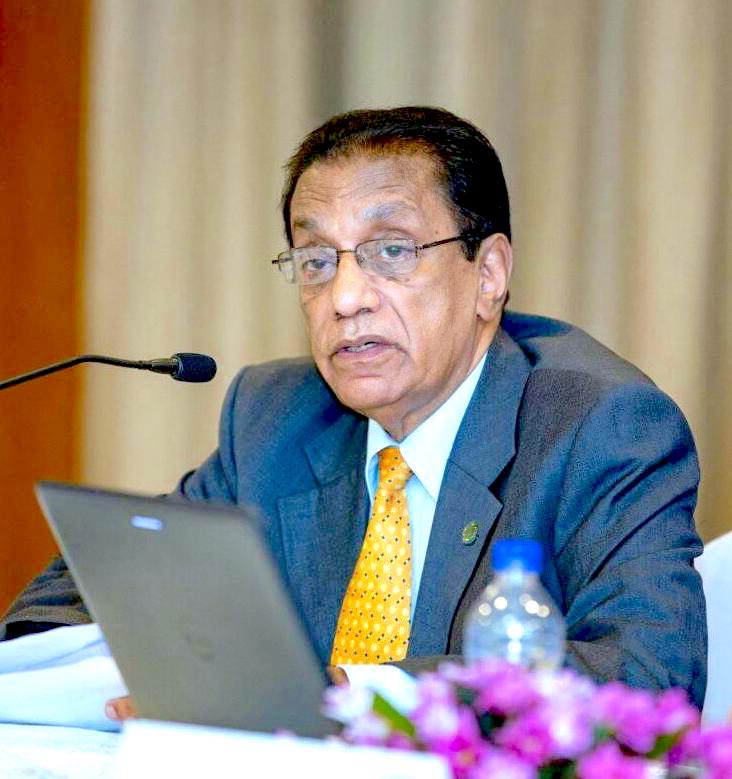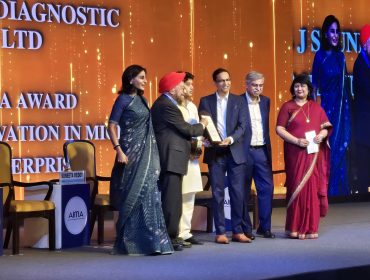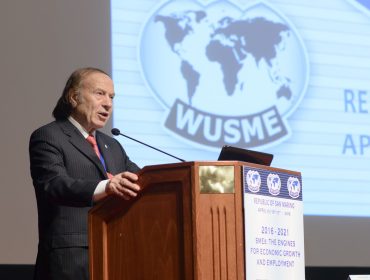
Nawaz Rajabdeen, WUSME Ambassador in Sri Lanka: “Let’s Transform the COVID-19 Challenge into an Opportunity”
Written by Dr. Nawaz Rajabdeen, WUSME Ambassador in Sri Lanka
April 8th, 2020 – Over the last several weeks, a new reality has emerged, and everyday life has changed drastically. Some businesses, in order to survive and carry out essential services, are turning to digital services while others are redefining the way they operate. While the sudden transition has caused much strain, it is also testing our resilience, ability to learn on-the-go in the face of adversity.
Thankfully the Sri Lankan Government’s took timely action taken to lockdown thus arresting the spreading of COVID19 in our country. Our national health service is continuously carrying out an exceptional feat, assisted by the Police an the Military in a humanitarian effort to contain the situation.
MSMEs penetrate everywhere – whether in urban or rural areas, and are invariably the first point of contact in a time of crisis to the consumer, rather than the big corporates. Therefore MSMEs are not only the economy’s backbone, but also the lifeline of Sri Lankan consumers. SMEs in agri-business, aquaculture, poultry and other livestock are among the key sectors that can make use of government’s support if given. The strong domestic demand for their produce during this COVID crisis shows low market risk for their supplies with possible immediate profits and a boost to their livelihoods. The agri-business sectors largely supported by Sri Lankan SMEs are teas including specialty teas, herbal medicinal and beverage supplements, coconut and oils, short eats, and fruits & vegetables. Aquaculture sectors include ornamental fish & ocean fisheries including fishery cooperatives and processing.
Previously on 19 March the Central Bank of Sri Lanka brought in several measures to ease exchange rate pressures and prevent market panic due COVID-19 pandemic. It directed the Banks to adopt three measures-suspending import of all types motor vehicles, suspending importation of non-essential goods and purchase of Sri Lanka International Sovereign Bonds. This is the ideal time for local enterprises to step into the production and processing of such items, presenting the country with a rare opportunity to trigger the revival of several local SME sectors.
Sri Lanka’s MSMEs have proved it’s mettle under gruelling circumstances before. When the Tsunami struck in 2004, an estimated 35,000 persons lost their lives, and more than 900,000 people were displaced overnight, with total destruction of assets and properties of small business enterprises throughout the coastal region. At that time Sri Lanka faced the biggest challenge to revive and resurrect micro and small sector industries in the country.
The most valuable characteristic in human beings is our ability to adapt and survive, and the same applies for MSMEs as well. Micro and small sector industries and trade institutions must to look upon this as a challenge to get back to business. There is also a saying that we must set our sails according to the wind, and it’s time to adjust our sails now. Let us look upon this challenge as an opportunity, and rise back to business even better than before. We are confident that WUSMI can play a very supportive role in putting MSMEs worldwide back to business.
Related Post
WUSME Partner of the AIM Congress...
WUSME participated in the 14th edition of the ANNUAL INVESTMENT MEETING Congress (AIM Congress 2025), held in Abu Dhabi from 7 to 9 April ...
WUSME’s contribution to the Dr. Juneja...
Within the scope of the ongoing fruitful collaboration between the AIMA (All India Management Association) and the WUSME, President Barbara ...
WUSME General Meeting 2025 remembering Gian...
On the occasion of the annual General Meeting, WUSME reminds that May 20th marks the fifth anniversary of the demise of GIAN FRANCO TERENZI,...




